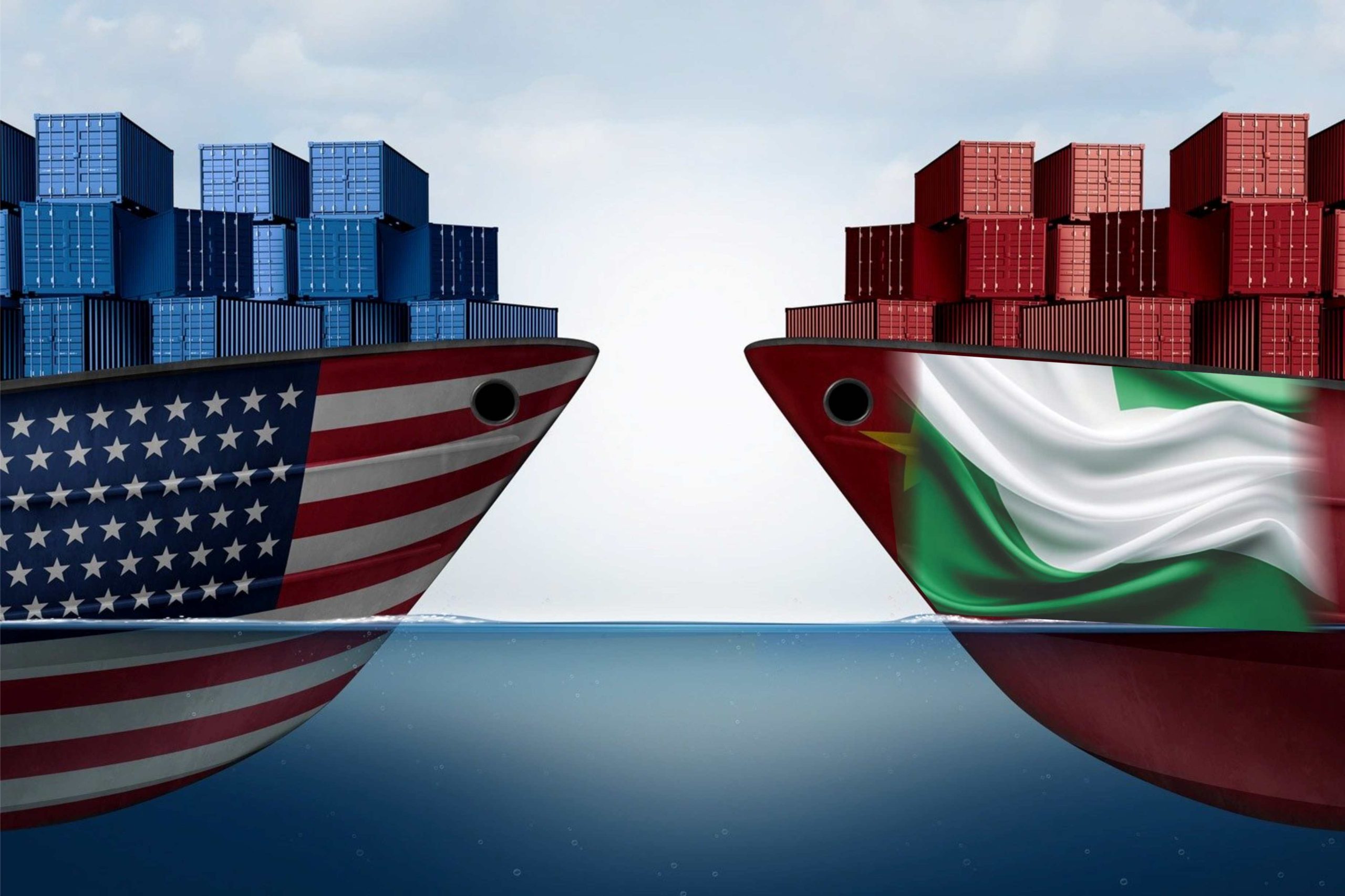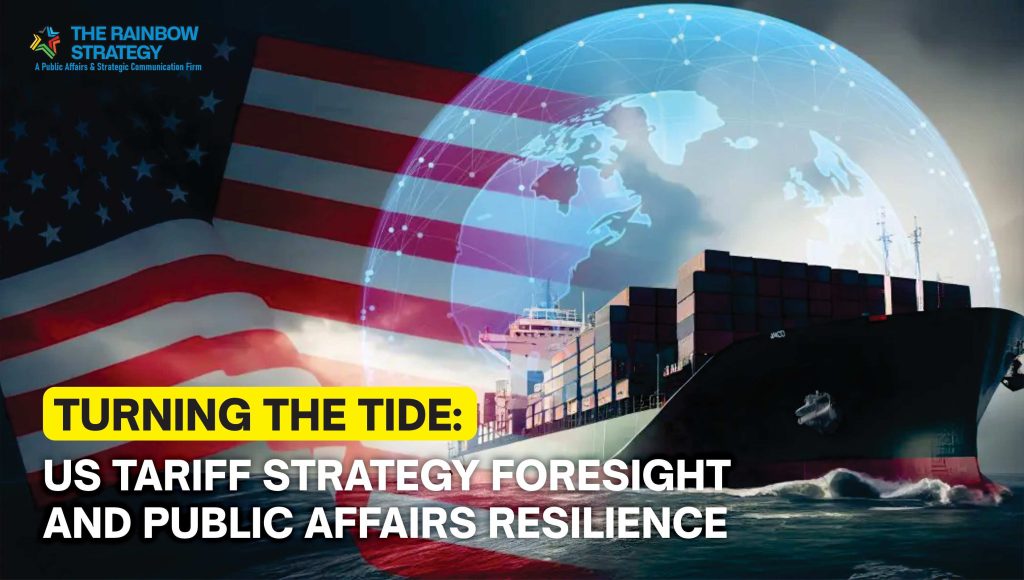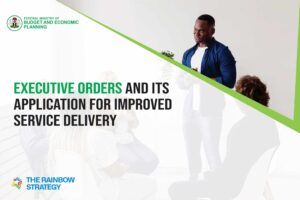The world is once again witnessing a storm of economic brinkmanship as significant economies clash through tariffs. The United States’ recent escalation—imposing steep tariffs on imports from multiple nations—has triggered a cascade of retaliatory measures, sending shockwaves through global markets.
Understanding the Global Trade Climate
Recent measures by powerful economies, as reported by sources such as Business Insider, The Guardian, AP News, Mexico News Daily, Vanguard and The Economic Times, have revealed the cascading impacts of tariff escalations. The U.S. tariff actions have prompted swift retaliatory responses across continents. These developments underscore a critical lesson: trade wars are not isolated events but part of a broader, interconnected global system. When tariffs disrupt markets, industries suffer, jobs are imperilled, and economic stability is threatened. The World Trade Organization (WTO) says it is actively monitoring these shifts, yet its ability to stem the tide of protectionism remains limited by the political imperatives of sovereign nations.
As industries falter, jobs vanish, and markets tremble, the fragility of global trade is laid bare. This context demands that countries like Nigeria develop strategic responses that both address immediate impacts and bolster long-term competitiveness.
Global Responses
The responses of major economies provide key insights:
- China’s Coordinated Retaliation: By matching tariffs and imposing additional export restrictions, China demonstrates that a well-calibrated retaliatory strategy can serve as a powerful negotiating tool.
- The EU’s Defensive Posture: The EU’s readiness to implement countermeasures highlights the importance of protecting domestic interests and ensuring that any trade policy reflects a balanced approach.
- Canada’s Tactical Retaliation: Canada’s focus on specific sectors (such as auto imports) illustrates how targeted measures can be designed to minimize domestic disruption while exerting pressure on trade partners.
- Mexico and India’s Adaptive Strategies: Both nations emphasize communication and strategic economic adjustments over immediate tit-for-tat responses, reminding us that flexibility and dialogue are vital in managing trade disputes.
Nigeria Responds

The recent imposition of a 14% tariff on Nigerian exports by the United States is more than a trade policy adjustment—it is a wake-up call for the Federal Government of Nigeria and its trade stakeholders. With over 90% of Nigeria’s exports to the U.S. dominated by oil and gas, and the rest comprised of fledgling non-oil exports now facing uncertain futures, this development offers both a challenge and a strategic opportunity.
Just last weekend, the official statement by the Federal Ministry of Industry, Trade and Investment, signed by Dr. Jumoke Oduwole, commendably balances diplomacy with realism. It reaffirms Nigeria’s commitment to economic diversification under the Renewed Hope Agenda while signalling a proactive stance toward global trade policy shifts.
But while the rhetoric is constructive, what is urgently required now is a coherent, multi-level public affairs and economic strategy that transforms this challenge into a catalyst for reform, regional trade integration, and global competitiveness.
Key Highlights from the Ministry’s Statement
- Diplomatic Posture: The statement maintains a respectful tone towards the U.S., reaffirming mutual economic interests and the strategic nature of the bilateral relationship.
- Economic Diversification: The emphasis on non-oil exports and AGOA’s disruption signals concern for SMEs and emerging sectors most vulnerable to tariff shocks.
- Policy Direction: It alludes to ongoing consultations with the U.S. and WTO, and a re-commitment to intra-African trade and AfCFTA implementation.
Strategic Analysis: The Real Risks and Strategic Imperatives
1. Tariff Impact on Non-Oil Sectors
The imposition of a 10–14% tariff on previously AGOA-exempt products jeopardizes gains made by SMEs exporting cashew nuts, shea butter, textiles, and value-added agricultural goods. For businesses built around low-margin exports, this could mean the loss of their biggest market.
2. SME Vulnerability
Many small exporters lack the resilience to absorb new costs or shift supply chains. Without urgent intervention—access to trade finance, subsidies, or new market linkages—they risk collapse.
3. Global Trade Realignment
The U.S. is reordering its trade priorities with a stronger bias towards security, climate, and strategic re-shoring. Nigeria must prepare for a more protectionist world by reforming its trade infrastructure, improving quality control, and enhancing traceability.
4. AfCFTA as a Buffer
The African Continental Free Trade Area (AfCFTA) is no longer a political ideal—it is an economic necessity. With American access becoming costlier, Nigeria must deepen ties with African markets and build regional value chains.
Strategic Recommendations for the Tinubu Administration
1. Aggressively Pursue a Trade Adjustment Plan
- Short-Term Relief: Establish a trade impact fund for SMEs hit by AGOA-related disruptions, offering subsidies or low-interest bridge loans.
- Medium-Term Reforms: Streamline export certification, remove bottlenecks at ports, and invest in the National Quality Infrastructure to fast-track goods into alternative markets.
2. Launch a “Beyond AGOA” Export Promotion Strategy
- Partner with NEPC, NEXIM Bank, and diaspora investment channels to open up markets in Europe, the Middle East, Asia, and the Caribbean.
- Roll out a public-private campaign showcasing Nigerian-made, export-ready goods—highlighting traceability, sustainability, and global standards.
3. Reinvigorate AfCFTA Implementation
- Fast-track Nigeria’s full domestic implementation of the AfCFTA protocols.
- Support logistics, warehousing, and customs harmonization within the ECOWAS corridor.
- Incentivize manufacturers to shift focus to African regional markets through tax credits or logistics support.
4. Strategic Public Affairs Diplomacy
- Utilize Nigeria’s diplomatic mission in Washington, DC to host high-level trade roundtables with U.S. lawmakers, chambers of commerce, and importers affected by the new tariffs.
- Advocate through multilateral forums for a revised AGOA framework post-2025 that reflects Africa’s developmental needs and global equity.
5. Narrative Control and Public Confidence
- Launch a strategic communication campaign emphasizing government responsiveness and resilience.
- Spotlight Nigerian export success stories and progress in trade facilitation.
- Keep businesses informed with regular tariff watch briefings and market intelligence updates via a dedicated online trade dashboard.
Conclusion: A Defining Test of Leadership
This moment will test the Tinubu administration’s ability to think beyond oil, beyond AGOA, and traditional trade models. If handled strategically, this tariff shock could galvanize Nigeria’s long-overdue transition into a true exporting nation—diversified, regionalized, and globally competitive.
But it will require more than policy pronouncements. It demands execution, coordination, and bold public affairs leadership to ensure Nigeria not only survives this moment—but emerges stronger from it.




